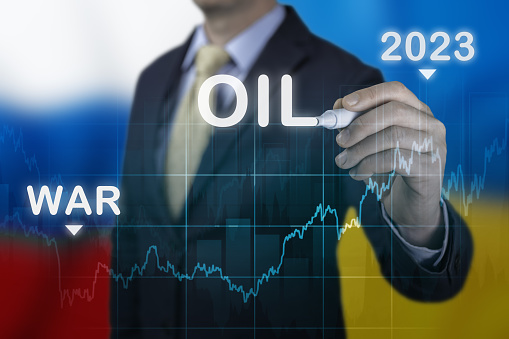How the Global Financial Crisis Affects the Russian Economy
The global financial crisis is causing pain on the Russian economy, but the country is not in danger of collapsing. Although the cost of living is increasing, the economy is robust enough to handle severe economic pain without compromising the country’s political foundations. In this article we’ll look at why Russia’s economy is unlikely to suffer as badly as the rest of the world.
Russians are suffering a cost of living crisis
The Russian economy is suffering a severe crisis and has affected the quality of life for many Russians. With high energy costs and reduced supply, the Russian people are facing a crisis similar to the one faced by the rest of the world. The world economy is already struggling under double-digit inflation and the resulting financial strains. Unemployment is on the rise and the European Union is considering reforming its public spending to address the crisis. Russia is a major energy supplier for other European countries, so the shortages will affect their economies.
In the post-Soviet period, the Russian economy has been ravaged by multiple crises. The “shock therapy” in 1992, the August 1998 default, and the 2008-2009 global recession all left their political and economic scars. Yet the current economic downturn is a structural and protracted crisis that limits the effectiveness of government instruments.
Despite these problems, the Russians are not experiencing a crisis as deep as that of the 1990s. In June, industrial production grew by just over 1%, which was lower than expected. However, the rate is misleading because many companies have been furloughing staff without pay to avoid redundancies. Meanwhile, according to the bank JPMorgan Chase, the service-sector index has recovered slightly from the recent fall. Meanwhile, electricity consumption and railway loadings, which are indicative of goods demand, are increasing again.
Russians believe their president to be an effective leader and he is seen by 45 percent of the population as “very effective” or “effective” in handling the crisis. However, the government is not as effective as the president, with 48 percent of respondents rating the federal government positively and 25 percent evaluating it negatively. The State Duma and ruling party received the highest percentage of negative evaluations.
Russia’s economy can endure serious pain without destabilizing its political foundations
If the United States, European Union, and other Western nations do not bail out Russia, its economic recovery will be slow and a more cautious one. The International Monetary Fund is unlikely to bailout Russia in the manner it did in 1998. It will also be unlikely to receive Special Drawing Rights from Western economies. As a result, Russia’s central banks will need to intervene with more caution to keep the economy moving forward.
One major problem with Russia’s economic recovery is the absence of solid data. The lack of data creates a sense of uncertainty and can lead to misreadings. Many analysts rely on periodic economic releases from the Kremlin, which are not always reliable. Nevertheless, these figures have long been seen as highly credible despite their methodological flaws.
President Putin must decide between the economic interests of his people and the interests of his country. He has faced this fundamental question many times before. In fact, this spring and summer, when Western sanctions were put into place, he faced the same dilemma as now. As a result, the Russian institutions have become accustomed to economic pain.
The recent sharp decline in the Russian ruble is a telling sign that Putin’s strategy has failed. Russia is now isolated from the international community and is taking desperate measures to shore up its currency. Meanwhile, the Russians are also suffering serious downgrades in their credit worthiness and economic projections.
Russia’s economy is not collapsing
While the Russian economy is not collapsing, there are a number of signs that it is under threat. According to the Yale University Chief Executive Leadership Institute, over 1,200 foreign companies have suspended operations in Russia. The list includes big names such as IKEA, McDonald’s, Visa, and MasterCard.
The recent default by the Russian government on its external debt, the first since the Bolshevik Revolution, means that the Russian economy will be facing severe problems accessing international credit for years to come. This will persist even if Russia is not forced to lift its sanctions over the Ukraine conflict.
The Russian economy has not yet experienced the full effect of the sanctions, but many analysts believe that this situation will worsen. The country’s imports have declined and manufacturers are struggling to obtain high-tech parts. Moreover, Russia’s position as a commodity exporter has been permanently eroded. Moscow is also forced to sell more oil to Asia at an extreme discount, and the resulting impact on the economy will take years to fully reverse.
There is a big difference between the Russian economy’s situation and that of the West. Western countries have imposed unprecedented sanctions against Russia for its involvement in the Ukraine war. Despite the sanctions, the country’s current account surplus tripled year-on-year in the first seven months of 2022. The Russian central bank has also increased its GDP forecast for the year.
The anti-American sentiment that the government has been spreading will not change. Putin views the US as the cause of all of Russia’s problems. This propaganda messaging will not change, no matter who becomes US president. While the Russian economy is slowing, the government does not intend to crash the country’s economy. It will continue to deteriorate over time, but a crash will not change much of its population’s attitudes.
Russia’s economy is not likely to suffer from the global financial crisis
Russia’s economy is likely to recover in the short term, but the recovery will be slower. The International Monetary Fund is unlikely to bailout Russia and the country will not qualify for Special Drawing Rights. Western economies will also be less willing to support Russia as they did in 1998. This means that the central bank will need to intervene more cautiously.
A key reason why Russia’s economy is unlikely to be affected by the global financial crisis is that Russia is one of the largest exporters of oil and gas. It also is one of the world’s largest suppliers of palladium, which is essential for the automotive industry and is used to produce catalytic converters. Moreover, Russia’s external debts are low, and it has around $300 billion of foreign exchange reserves. These reserves are primarily held in gold and renminbi.
The oil-dependent economy of Russia is currently suffering a deep recession, but it isn’t yet showing signs of collapse. Although it has been hit by sanctions and Western companies leaving the country, it has managed to stay afloat for now. In the long run, however, it’s going to suffer as the country’s economy continues to de-industrialize.
The Russian elites are aware of the problems facing their country, but their complacency makes them unlikely to change. In other words, they are not willing to embrace change, as long as it’s instantaneous. They won’t attempt to change Russia’s development vector, which is based on existing economic and political models. Because the Russian economy is not undergoing a major reform, stagnation is the likely result.
Russia’s economy is not likely to suffer from airspace bans and sanctions
Airspace bans and sanctions have a number of negative effects on the Russian economy. One of the most significant is a sharp drop in the ruble. This will lead to increased prices for imported goods and, in turn, a reduction in the real purchasing power of Russian consumers. This will negatively impact the country’s real GDP.
The economic impact of airspace bans and sanctions will take time to materialise. Russia has a low external debt and massive foreign exchange reserves. While gas prices are rising, the economic impact of sanctions on the aviation industry is unlikely to be felt for several years.
While sanctions and airspace bans are not a direct threat to Russia’s economy, they are still detrimental to the country’s economy. Aircraft exports to Russia are expected to fall as a result of the bans. This is also true for airplane manufacturers.
However, sanctions against Russia could have a more negative impact than expected. Although the Russian economy is the eleventh largest economy in the world, sanctions are likely to cause damage to the country’s economy. Because of this, it’s likely to turn to other countries to offset the impact of the sanctions. For example, it may turn to China or other nations for financing. In addition to these measures, the Russian government also has many front companies abroad that can help with the procurement of crucial components and technology.
In addition to airspace bans and sanctions, the Russian economy has also been hit by a number of financial measures. A ban on correspondent banking has barred Western investors from buying Russian banks’ bonds and shares. While alternative methods exist, they are slow and clunky. As a result, many transactions in Russia and other countries are unlikely to be completed without the use of the dollar.



